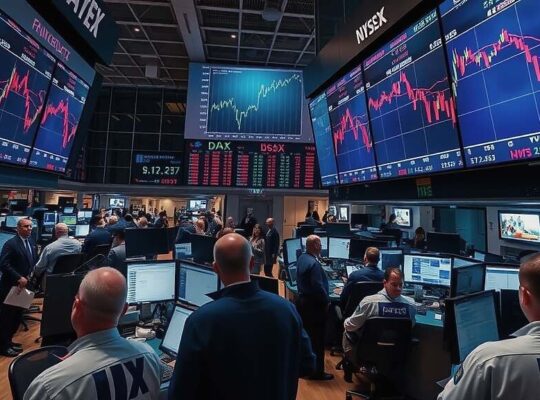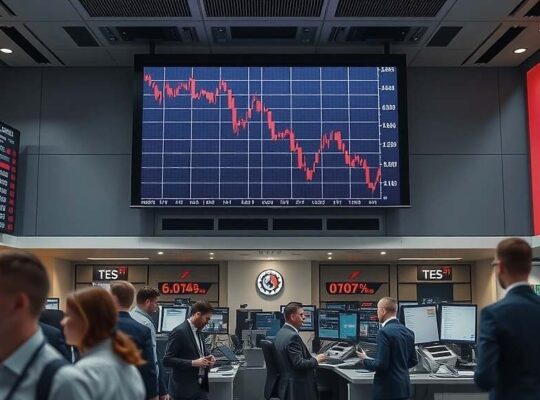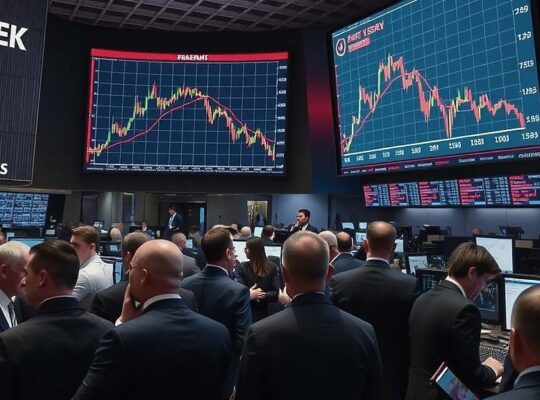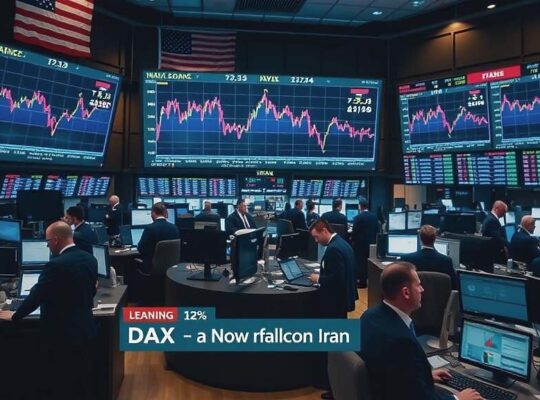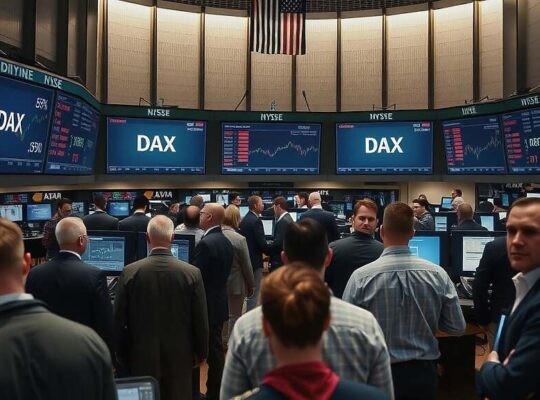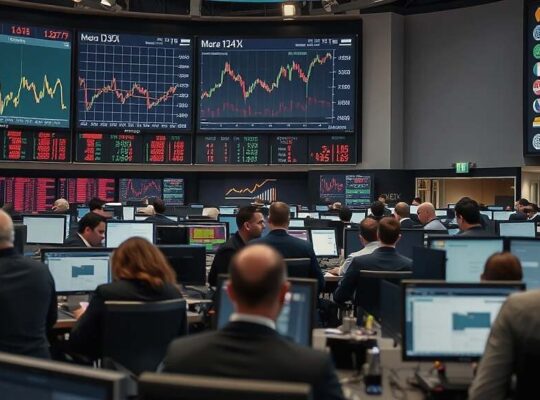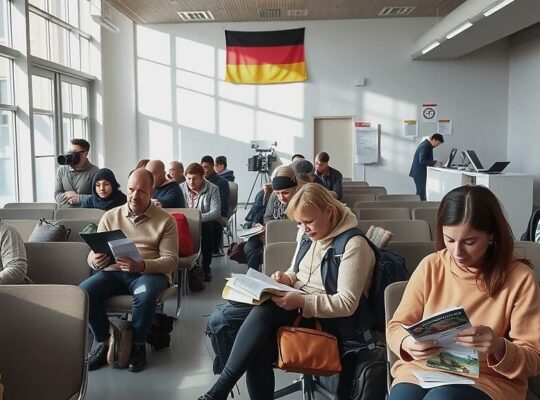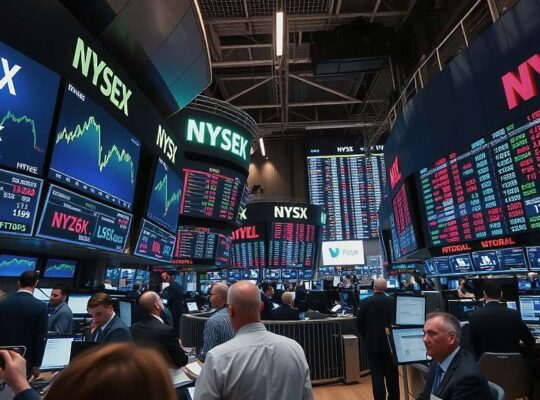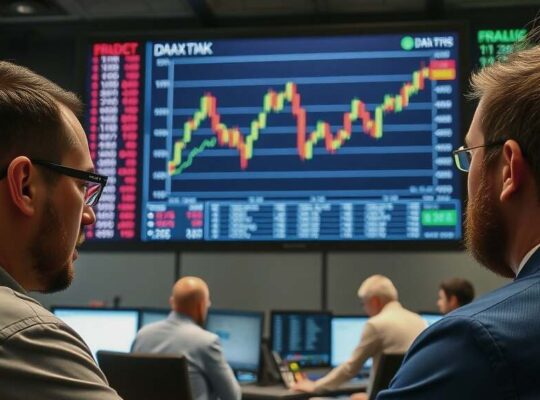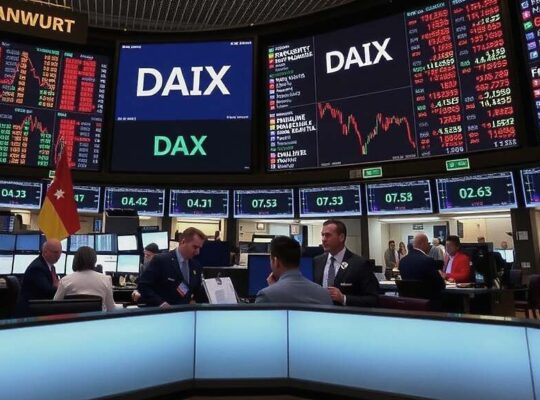European markets opened modestly higher Thursday, with the German DAX index reaching approximately 23,815 points-a 0.4% increase from Wednesday’s close. The gains were led by Deutsche Börse, Rheinmetall and Infineon, while Henkel, Eon and Deutsche Bank lagged at the lower end of the performance spectrum. However, the subdued trading environment underscored broader anxieties surrounding global economic momentum.
The relatively limited market activity reflects the absence of direction from US markets, which remain shuttered for the Thanksgiving holiday. Analyst Thomas Altmann of QC Partners highlighted the anticipated impact, stating that the lack of US influence will keep European trading volumes below average. “Even with considerably smaller transactions, current market conditions can still produce impactful shifts” he cautioned, suggesting that low volume shouldn’t automatically equate to market stagnation. This observation subtly critiques the potential for volatility driven by even minor investor actions in an unsettled climate.
The euro also experienced a slight depreciation against the US dollar, trading at $1.1589, a development that reflects ongoing concerns about the Eurozone’s economic outlook. While a smaller fluctuation, it contributes to a narrative of vulnerability within the currency, particularly as the region grapples with persistent inflation and the lingering effects of geopolitical instability.
Furthermore, a mild dip in the price of Brent crude oil – now trading at $63.03 a barrel – underscores the complex interplay of recession fears and supply chain uncertainties currently shaping the energy sector. The limited price movement points to a cautious outlook amongst investors, who appear wary of committing to significant positions in the face of broader economic uncertainty. The overall picture suggests a fragile market, susceptible to unexpected shocks despite the initial positive open.



